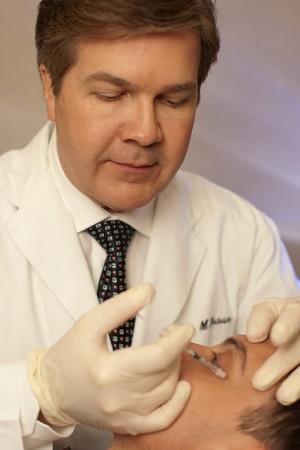
Botox injections can help fight stomach cancer, according to a new study.
The researchers based their findings on the break-through discovery that nerves played a huge role in stomach cancer growth and the realisation that Botox, a non-surgical cosmetic method used to treat wrinkles, induced nerve block.
Botox is a medicine produced from a toxin found in the bacterium Clostridium botulinum. The popular cosmetic treatment helps to stay young and beautiful by blocking the nerve cells from releasing acetylcholine, a neurotransmitter that stimulates cell division.
In the study, using the same technique, researchers successfully blocked the nerve signals and prevented cancer growth in mice.
Making the nerve - cancer link more clear, researchers found that vagotomy, a surgical procedure that involves cutting of the vagus nerve to reduce acid secretion in the stomach, slowed tumour growth and improved survival.
To provide more solid evidence, researchers studied 37 people with stomach cancer recurrence. In most of the cases, the cancer re-appeared in people who did not undergo vagotomy in the past and in regions where the nerve connections were not cut.
"Scientists have long observed that human and mouse cancers contain a lot of nerves in and around the tumor cells," Dr. Timothy C. Wang from the Columbia University Medical Center in US, said in a news release. "We wanted to understand more about the role of nerves in the initiation and growth of cancer, by focusing on stomach cancer."
"We found that blocking the nerve signals makes the cancer cells more vulnerable—it removes one of the key factors that regulate their growth," Dr Wang, added.
Combining the nerve-targeted therapy with other cancer treatments can provide added benefits, according to the authors. The technique can help improve treatment outcomes by making cancer cells more vulnerable to chemical agents. Botox and chemotherapy, when used together, can improve survival rates by 35 percent, they said.
The study has been reported in Science Translational Medicine.
Though Botox is popular for its cosmetic effects, it is also widely used to address several health problems, including excessive underarm sweating, uncontrollable blinking (blepharospasm ), chronic migraine, urinary incontinence, misaligned eyes (strabismus) and medical disorder cervical dystonia (neck and shoulder muscle contraction).
Additionally, research shows a single dose of Botox relieved nerve pain in people with thoracic outlet syndrome (TOS), a disorder caused by compression of blood vessels or nerve cells lying between collarbone and first rib or thoracic outlet. It has also been proved effective against obesity and prostate cancer.
However, the technique does produce some side-effects, including pain, headache, swelling, flu and indigestion.
















